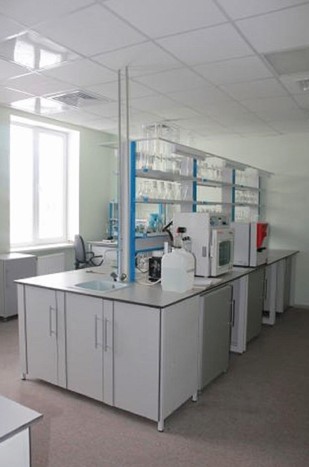France will provide emergency assistance to its dying pig sector

France's Agriculture and Food Minister Julien Denormandie announced an emergency plan to save the pig sector amid an assessment that at least 30% of French pig farms could disappear by 2023. This was announced on January 31 by the press service of the ministry.
Denormandy brought together the French pig industry and agricultural banks to launch a coherent route out of the crisis. it provides, in particular, up to 270 million euros, and the strengthening of more structural measures, such as the implementation of the law EGalim 2 (on the protection of farmers' remuneration) or even European measures.
“Faced with this historic crisis, if we do nothing, at least 30% of our pig farmers could disappear. What do we want? Should we let him go and lose a whole segment of our agri-food chain that we are proud of, or fight to maintain our sovereignty? I have decided to fight with this roadmap approved today with the sector, including a contingency plan worth up to 270 million euros, as well as strengthening temporary, but also structural provisions, in particular the EGalim2 law.” Julien Denormandie said.
As a result of the crisis caused by the pandemic, there was a disorganization of international transport, inflation of agricultural resources and raw materials used, in particular, in the composition of animal feed. The situation was exacerbated with the emergence of African swine fever in Europe, causing an oversupply. As a result, the French pig sector is facing the highest price scissors in 30 years, with the price paid to the producer falling by 14% per year for the average farm and costs rising by 27%.
Thus, losses in the sector reach unprecedented heights: 440 million losses in one year. Nearly a quarter of pig farmers have already reached a critical threshold of short-term debt, preventing them from covering their current expenses any longer, nor from taking advantage of additional short-term bank loans.
In the fall of 2021, the government took both temporary measures, in the form of extending guaranteed bank loans with the opening of PGE for pig farmers, activation of crisis cells and common law mechanisms, and structural, in the form of the EGalim 2 law. But it is now clear that the current funds are no longer enough, given the duration of the crisis and the time required for the EGalim 2 law to show its first results.
In addition, government and producers met to define an agreed roadmap with all stakeholders formally committed to helping the pig sector overcome the crisis and setting targets for structuring and transformation for the future.
As a result, the government announced a rescue plan totaling up to 270 million euros.
It includes a total of €75 million in emergency assistance in the form of payments of up to €15,000 for pig farms experiencing severe cash flow difficulties. This assistance will be rolled out within two weeks.
In addition, structural assistance will be provided, backed by a contractual obligation under EGalim 2, up to a maximum of €175 million, which will complement the compensation for losses of pig farms in accordance with criteria and methods to be specified in consultation with professionals. .
There is also a surcharge for common law agreements to cover MSA contributions up to EUR 20 million.
At the same time, the roadmap approved today includes a number of temporary provisions.
At European level, the mobilization of other Member States will continue to alert the Commission about the situation in the pork market and request the activation of European measures for this sector (private storage assistance, exceptional market measures, etc.). These measures are absolutely necessary to clear the market.
It is planned to launch advertising campaigns, if necessary, in connection with other European countries, as well as strengthening biosecurity measures against the risk of African swine fever.
A commitment was made by all participants, from producers to distributors, to accelerate within a month the implementation of EGalim 2 and, in particular, the conclusion of contracts with the initial links in the sector from producers to slaughterhouses through producers' organizations.
“If the state is involved, every link in the chain must also be involved. Therefore, I call for the solidarity of the entire sector, both processors and distributors, to apply the EGalim 2 law, especially regarding the selection of appropriate indicators at each link, and that they reward and evaluate our products, that they are making efforts towards pig producers”, the minister said.
Read together with it:
- Фермер из Увата получил грант на строительство мясоперерабатывающего заводаПолученные средства будут направлены на строительство производственных мощностей для переработки мяса абердин-ангусов и овец породы дорпер. В планах фермерши - начать выпуск высококачественной говядины, баранины и полуфабрикатов, а также обеспечить местное население Уватского округа продукцией собственного производства с 2......
- "Cardboard Superpower." What is Poland prepared to take into 2026?Photo: Unsplash The Polish government has submitted its draft 2026 budget to the Sejm. In short, the hole in the Polish budget is growing even wider, and the national debt is on the verge of skyrocketing. Meanwhile, military spending is breaking records, cementing Poland's status as NATO's leader in defense spending as a percentage of GDP. However, the value of such leadership is questionable. Or ...
- Politico has learned that the European Commission has proposed changing the sanctions extension mechanism.The European Commission has proposed that EU countries approve sanctions extensions by qualified majority rather than unanimity, to avoid Budapest blocking the decision. Ambassadors will discuss the new measures today. RUSSIA considers them illegal.The European Commission is proposing a change in its approach to extending sanctions against Russia to circumvent Hungary's potential blocking of the d...
- The FT has revealed whether the UN will be able to stop being a "walking dead man."The UN could suffer the same fate as the League of Nations, which was closed due to its failure to stop World War II, the FT reports. Some former UN diplomats call it a "dead man walking," while others advocate for a change in structure and approach. US President Donald Trump's speech at the UN General AssemblyThe United Nations faces a deep crisis as it approaches its 8......



























































